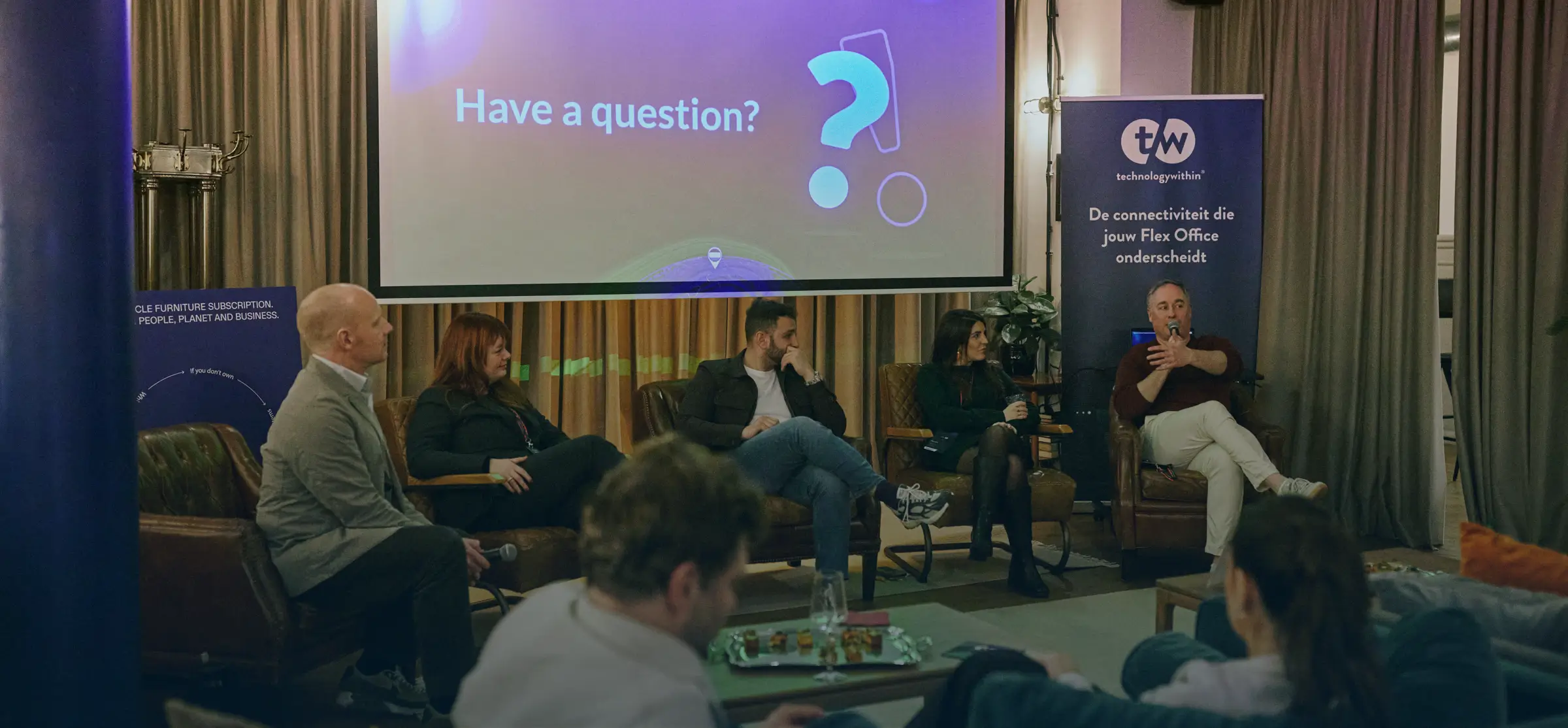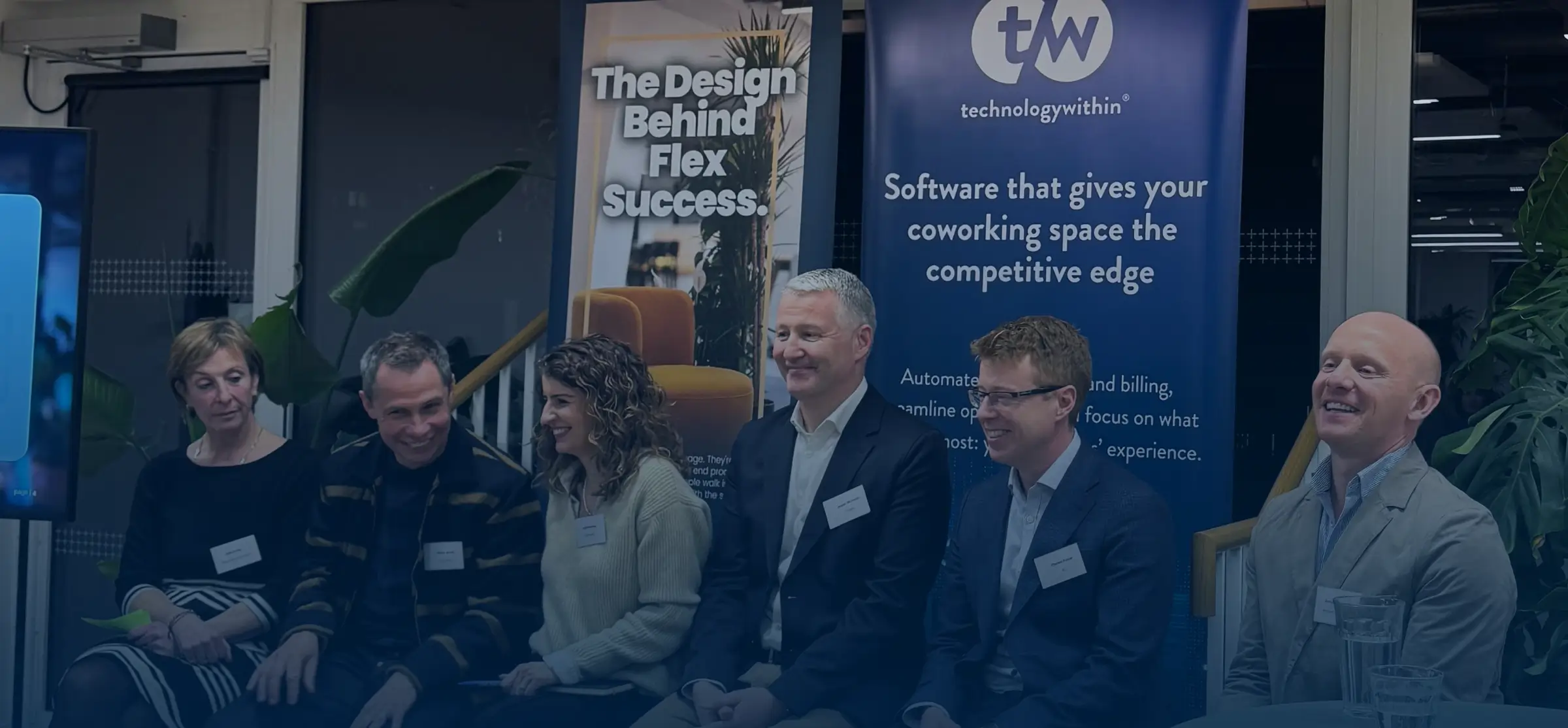
In the flexible workspace industry, the path to net zero distinguishes operators and landlords who prioritise ESG initiatives from those who don’t. To explore how the flex sector is driving change, Samuel Warren, Sales & Marketing Director, technologywithin, moderated a discussion on ESG policies with the following panellists:
- Carlos Gonçalves, CEO and Founder, Avila Spaces
- Josh Rose, ESG Manager, Clockwise
- Mirjana Huber, Head of Quality Management & Sustainability, Design Offices
- Hubert Abt, Founder and CEO, New Work
- Ana Sousa, General Director, Vertical Coworking
This blog post shares highlights from the webinar, insights from the first-ever ESG Coworking Survey, and explores practical ESG strategies and tools to help you deliver a more sustainable, socially responsible coworking offering.
Getting started with ESG
Introducing ESG policies is a fairly recent move taken by 41% of flexible workspace operators in the last couple of years. Joining them is Lisbon’s Avila Space, where Carlos Gonçalves believes that a commitment to ESG is critical, and a “selling point that makes sense for our lives and environment.” However, with 21% of operators confessing they have no policies whatsoever, the difficulties often lie in knowing where to start.
Before Vertical Coworking looked at environmental impact, it addressed social change. Ana Sousa believes you don’t need to make a large upfront investment, advising operators to “look at what you have and what you can do.”
In fact, there are many small, low-cost steps you can begin with. The panel recommended the following:
- Ask stakeholders across the business what they expect from you. Consider that different needs vary across coworkers, SMEs, and corporate clients. Surveying helps gather information.
- Choose three or four Sustainable Development Goals (SDGs) to look at. Focussing on these goals in your day-to-day operations will make the biggest impact.
- Reducing energy consumption and switching to renewable sources saves money. Installing energy-efficient LED lighting can reduce energy costs by around 65%, for instance.
- Improving and measuring waste management is a small area with a big impact. as seen with our partners Koba. technologywithin is the first technology partner to adopt existing hardware in our clients’ spaces, rather than ripping it out, saving thousands of switches from going to landfills.
Following the launch of its ESG policy in 2020, Design Offices has proudly become Germany’s first carbon-neutral operator. “Our biggest impact was changing our electricity to green from renewable sources,” explains Mirjana Huber. Clockwise similarly began its ESG journey by improving the sustainability of its existing infrastructure in older buildings and by conducting a sustainability audit.
Increasing client pressure to report on ESG
Clockwise’s commitment to positive impact was also influenced by increasing client demand to share consumption data and renewable energy certification across the UK and Europe. Recently, Josh Rose has seen far more requests, from three in 2023 to 35 in 2024, and 68 this year so far (at the time of recording). This demand is largely driven by organisations pursuing B Corp certifications.
The panellists express similar pressure from clients, rather than government-enforced legislation. Ana Sousa views this as a “good opportunity to take initiatives without waiting for regulation to force us to act…it’s the moment to do something.” Down the chain, companies are also increasing their ESG commitment, aligning with employee expectations. Interestingly, 27% of workers will consider an employer’s commitment to sustainability before accepting a job.
Although Mirjana Huber describes client requests for ESG metrics as “goodwill in demand,” she admits that challenges in obtaining energy consumption data come from German landlords, along with a lack of equipment to measure impact.
Technology is the backbone for ESG tracking
As 95% of buildings aren’t designed to measure ESG efforts, according to Hubert Abt (who launched an ESG monitoring platform in lockdown), the growth in client expectations signifies the importance of technology underpinning efforts. ESG data tracking is still in its early stages. Nonetheless, Hubert stresses, “what you can’t measure, you can’t manage.” He recommends tracking ESG with tools, including digital meters, IOT solutions, and sensors.
Vertical Coworking uses a platform to gather metrics, monitor, and control air conditioning units, with sensors managing room temperature based on space occupancy. Running the platform isn’t hugely costly, but it saved energy consumption by 48% last year, reinforcing its value as an investment.
But, Hubert Apt believes that ESG reporting is “not about just measuring what’s in the space, but also about measuring what’s outside the space.” He urges operators to understand how tenants travel to work, as commuting causes 50% of office emissions. In Japan, some workspaces reward tenants who actively lower their impact with credits to spend on amenities, such as meeting rooms.
Taking responsibility for ESG initiatives
Gathering data and reporting is one part of the challenge. But, there’s another pressing question to explore on your journey to becoming net-zero: Who takes responsibility for your ESG initiatives?
Interestingly, 53% of roles responsible for delivering ESG initiatives sit outside of senior management teams. As an example, the senior leadership team at Clockwise informs the overarching policy, while as ESG manager, Josh Rose oversees progress. He also leads monthly meetings with the organisation’s ‘Green Champions’ – a nominated team member from each workspace who keeps signage up-to-date in coworking spaces, while meeting England’s latest Simpler Recycling policies. According to Josh, ‘having buy-in from everyone is really important.’
Carlos Gonçalves believes that “top management should be responsible for ESG initiatives,” while community managers can implement them on the ground. However, he admits that a simple framework is easier to manage when you’re running a smaller company. Meanwhile, Hubert Abt urges managers to do more than just engage in ESG initiatives by fully committing to the process. In his words: “Culture eats strategy for breakfast.”
What about social impact?
Climate change and environmental policies tend to dominate ESG conversations. As the coworking industry embraces community, the importance of social impact shouldn’t be overlooked, covering relationship management with stakeholders and inclusivity initiatives.
Ana Sousa firmly believes that flexible workspaces with strong social initiatives appear more attractive to customers. All Vertical Coworking events are inclusive, accessible, and promote diversity. Its impact even goes beyond the workspace, for example, forming partnerships with local businesses and universities to upskill the unemployed.
‘Most businesses focus on big cities, but we need to support all the areas where we don’t have many investments, and promote partnerships and business opportunities in more rural areas,’ Carlos Gonçalves advises. For instance, Avila Spaces supports a small village in Portugal. Likewise, Clockwise forms partnerships with local businesses, invites guest speakers, organises wellness events with tenants, and runs charity events. Josh Rose believes tracking social impact is important.
Future ESG trends
The panellists’ fierce commitment to ESG was noticeable throughout the discussion. In their calls for better innovations in the flexible workspaces of tomorrow, almost all panellists requested improvements to ESG data solutions. Josh Rose expresses his interest in seeing innovations such as infrared heating and AI plug sockets. Ana Sousa would like more coworking spaces to embrace biophilic solutions, while Hubert Apt expects to see circular materials in flexible workspaces moving forward.
To start your ESG journey, watch the full webinar and download our latest ESG report.
Recent articles

Who’s Got the Flex Factor? The Battle for Coworking Success in the Netherlands

Coworking Trends in 2026
